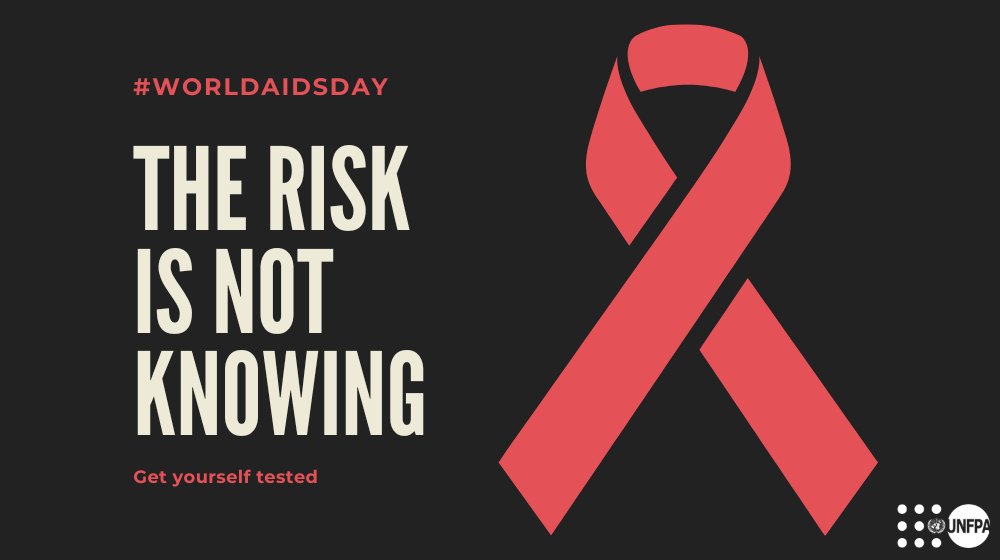The 2022 World AIDS Day provided another opportunity to increase awareness about HIV, improve HIV education, fight associated stigma and discrimination, and mobilize resources for the global HIV response. For adolescents and young persons in Cross River, Benue, and Akwa Ibom, it was also an avenue for them to access HIV testing and prevention services, including condoms.
UNFPA Nigeria asked some participants what their thoughts are on different aspects.
For a 21-Year-old female, Benue State
“Knowing my HIV status empowers me with information to protect and take good care of myself and my family. I wouldn’t say I like disclosing my status to family and friends because when they know my status, I will be discriminated against, and everyone will feel I got HIV through Sex. Young people also feel shy getting condoms because the service providers are Judgmental providing condoms to young persons.”
For Winner, 20-Year-Old, Female, Benue
“I discuss safe sex with family and friends because it allows us to correct misconceptions about HIV and Sex. There is also a lack of access to free condoms for young persons, which have limited HIV protection in Benue State.”
For Favor 22, Year old Female Cross River
"I was encouraged to come for HIV testing because I saw another young person coming, and I was sure I would be attended. More youth-friendly hubs should be created where young persons can freely access HIV prevention and testing services without fear of discrimination"
For Joshua, 24 Years, M Cross River
“There is a lot of stigma around discussions on HIV, and it is almost absurd for a young person to walk up to a health care provider to ask for condoms. Health care workers should be trained to be youth friendly and provide the right information to encourage more young persons to access HIV prevention and treatment services.”
For Dr Edith Mathias, a staff with Akwa Ibom State Agency for the Control of AIDS.
“The HIV response is improving, with more HIV testing ongoing and those positive on treatment; government should, however, fast-track passage of the HIV anti-stigma bill to protect persons with HIV who disclose their status. This will encourage more people to speak out and come for HIV testing.”
HIV/AIDS is still a significant public health challenge in Nigeria, with an estimated 1.9 million people living with HIV and AIDS, as reported by the 2019 Nigeria National HIV/AIDS Indicator and Impact Survey. The HIV infection rates are also higher among adolescents and young people, with prevalence higher among adolescent girls and young women than their male counterparts. UNFPA, in partnership with the State Government and partners, is supporting development programs that promote integrating HIV responses with sexual and reproductive health care, part of an overarching strategy for achieving universal access to HIV prevention, care and treatment services, including condoms.


